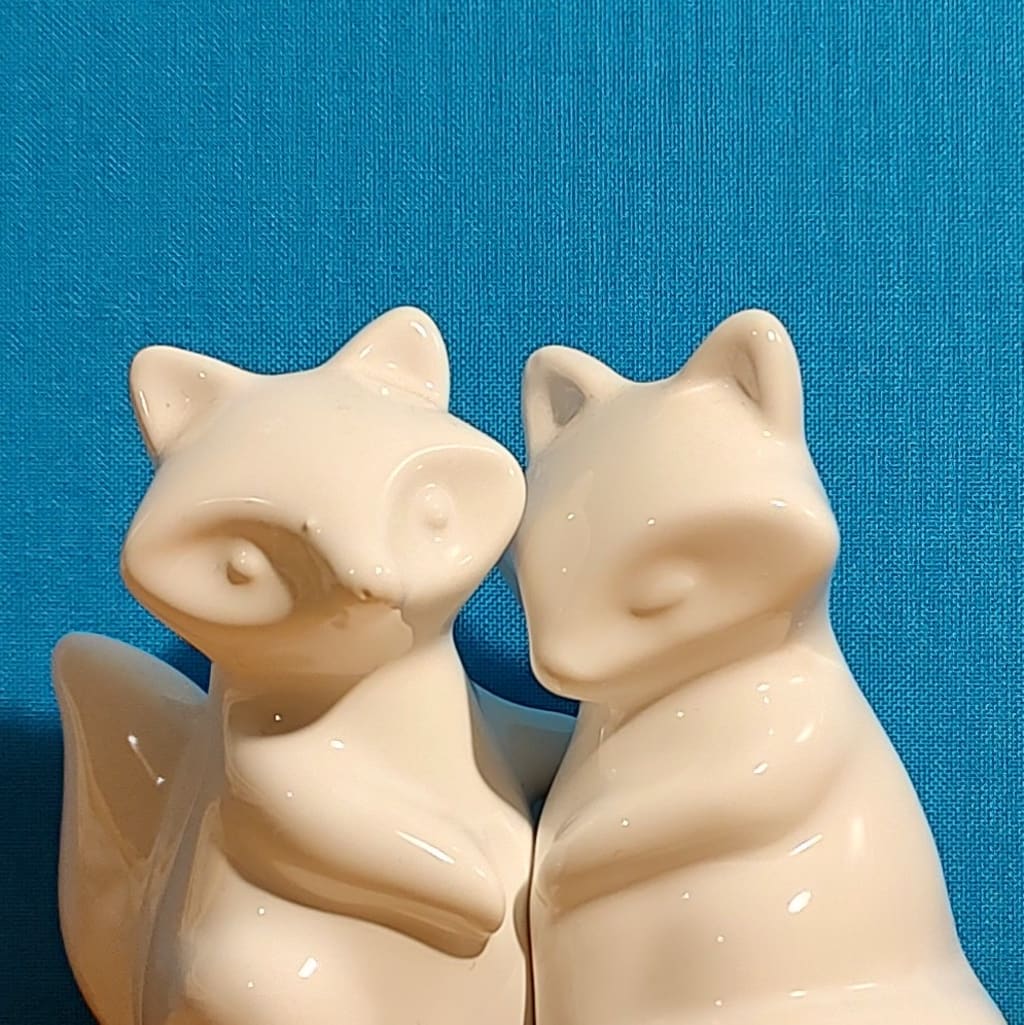Love is a Shitload of Work
A reflection on love

Love… is a shitload of work.
This is most likely because ‘love’ is a verb and not a nouny feeling like we want to believe. If love were a noun, it would be simpler to understand because nouns are straight forward and honest; self-centered, to be sure, but with a noun you can be certain what kind of person, place, or thing you’re getting.
Alas, love is a verb, and verbs are hard because they’re shy and hide behind the shiny nouns to distract us.
If, for example, I told you, “A Little boy tamed a fox, and the fox wept when the boy went away,” you likely would think “A tamed fox! How very remarkable!” and you would probably picture the pair playing in the grass, watching sunsets, or perhaps you’d think of the poor fox crying as the boy left. As wonderful and tragic as the images are, you would have fallen for the verb’s trap: You would have ignored the activities implied by ‘tamed,’ and focused instead on the shiny, noun-laden results of taming.
We do the same with love.
When we think of love, we think of the wonderful nouns it produces: romance, attraction, patience, generosity, honesty, and the other warm, nouny feelings. But love doesn’t produce these things automatically, rather the lover must work like a boy taming a fox: establishing a bond through the process of knowing and being known.
The little boy and the fox are themselves the best illustration of this, and their story is told in the small history called “The Little Prince,” written by Antoine De Saint-Exupery. In their story, the little prince has traveled a very long way from his home on Asteroid B-612, and far from a Rose he had learned to love (though he didn’t quite realize it). One day, while feeling rather lonely, he meets the Fox.
"Who are you?" asked the little prince, and added, "You are very pretty to look at."
"I am a fox," the fox said.
"Come and play with me," proposed the little prince. "I am so unhappy."
"I cannot play with you," the fox said. "I am not tamed. […]. To me, you are still nothing more than a little boy who is just like a hundred thousand other little boys. And I have no need of you. And you, on your part, have no need of me. To you, I am nothing more than a fox like a hundred thousand other foxes. But if you tame me, then we shall need each other […].
In this passage, we see a moment we’ve likely experienced ourselves: eye meet eyes across the room, or a pair sit at the same table in a conference, or smile across the counter, and in that moment they share a question: could we know one another?
Perhaps the question arises from the simple sentiment like, “you are pretty to look at,”, or it’s from feeling lonely in a new place, or it’s conversation about a shared interest, but whatever the reason it is the overlap of two individuals wanting to know and be known, to be tamed.
But wanting to be tamed is different from being tamed. Taming does not just happen; it takes time and persistence. The prince intuits this, and so he protests:
“I have not much time. I have friends to discover, and a great many things to understand."
"One only understands the things that one tames," said the fox. "Men have no more time to understand anything. They buy things all ready-made at the shops. But there is no shop anywhere where one can buy friendship, and so men have no friends anymore. If you want a friend, tame me . . ."
Here we find the essence of the verbs ‘to tame’ and ‘to love.’ Love, like taming, means taking time to understand one another, and that means choosing the behaviors (the verbs) to facilitate that knowledge.
Our world tells us that love is a commodity that can be bottled, traded, and disposed of when it’s old and no longer serves our needs. But love is not a trinket, and when our heads stop swirling with the marketable nouns, we see that there is a verb hiding beneath the lights: to do. So, the prince asks:
“"What must I do to tame you?"
"You must be very patient," replied the fox. […]”
and the fox explained that the prince should “observe the proper rites,” which are the things that “make one day different from other days, one hour from other hours.” All for the sake of knowing the other individual. These rites are often the activities of living: dinner together, the weekly game night, talking through the day, a small gift, the house chores, childcare, tending the other when sick. The desire to love one another should produce the willingness to share in the daily ups and downs of life, and to learn how the other feels about them.
For the Little Prince, the desire to tame the fox produced the willingness to be patient and observe the ‘rites’ of taming, and the same occurs when we endeavor to love: through our desire to know the other, we begin to choose to love them, and by making this choice we start working through the process of taming, of knowing and being known.
This process, in turn, begins to change us in subtle yet profound ways. For the fox, this process meant a change in perspective:
“I do not eat bread.” Said the Fox, “Wheat is of no use to me. The wheat fields have nothing to say to me. And that is sad. But you have hair that is the color of gold. Think how wonderful that will be when you have tamed me! The grain, which is also golden, will bring me back the thought of you.”
We experience this same thing when we love someone: the time we spend together gives particular weight to certain places, songs, or sensations. And we begin to approach life's tasks with the wellbeing of the other in mind. But risk comes with these changes, because using our time to know and be known by someone means creating a bond, and bonds can bring both joy and pain to our lives. With the color of the wheat, the fox expresses the profound joy of being tamed, but when the prince prepares to leave, the fox expresses the pain as well:
“Ah,” said the Fox, ‘I shall weep,’”
“It’s your own fault,” said the Prince, “I never wished you any harm, but you wanted me to tame you,”
“Yes, this is so,” Said the Fox.
“But you’re going to weep!”
“Yes, this is so,”
That is the hazard of loving: that even though we may have shared the ups and downs of life for days, or weeks, or months, or years with another individual, the time feels wasted when the bond is broken by parting ways. Whether a temporary goodbye or the long sleep of death, in those sad moments, the consumable nouns point to the pain and say, ‘Aha! See how much better it is to buy affection ready-made instead of risk the verbs! A noun supplies all the joys of love, and you can always buy more! But see how you've wasted your time understanding a person who's gone!"
But the Fox helps us see through this ruse,
When The Little Prince says,
“Then [being tamed] has done you no good at all.”
“It has done me good,” Said the Fox, “because of the color of the wheatfields,”
What the fox illustrates, is that there is beauty that emerges from bonds, even when those bonds end in loss and grief. The ready-made world may say it’s a waste of time because these nouns grown from verbs are tinted with sorrows. But if we dare to risk ourselves in actively loving someone, then then through that bond the nouns of the world gain strength from the verbs beneath them.
It's the time ‘wasted’ on the other that makes them so important, and it’s this persistence in pursuing the other through the rites and pain of understanding them that makes love a shitload of work.
About the Creator
Judah LoVato
Dear Reader,
I hope you enjoy perusing my collection of works, and I would love to hear your thoughts on anything you read: what you liked, what you disliked, and any other feedback you may have.
I look forward to reading with you,
Enjoyed the story? Support the Creator.
Subscribe for free to receive all their stories in your feed. You could also pledge your support or give them a one-off tip, letting them know you appreciate their work.







Comments (2)
I appreciate you sharing this thoughtful analysis of love.
Really fantastic work. I adore the Little Prince, and you wove Saint-Exupéry's reflections on love perfectly into your own uniquely insightful piece. Thank you for sharing this! 💙